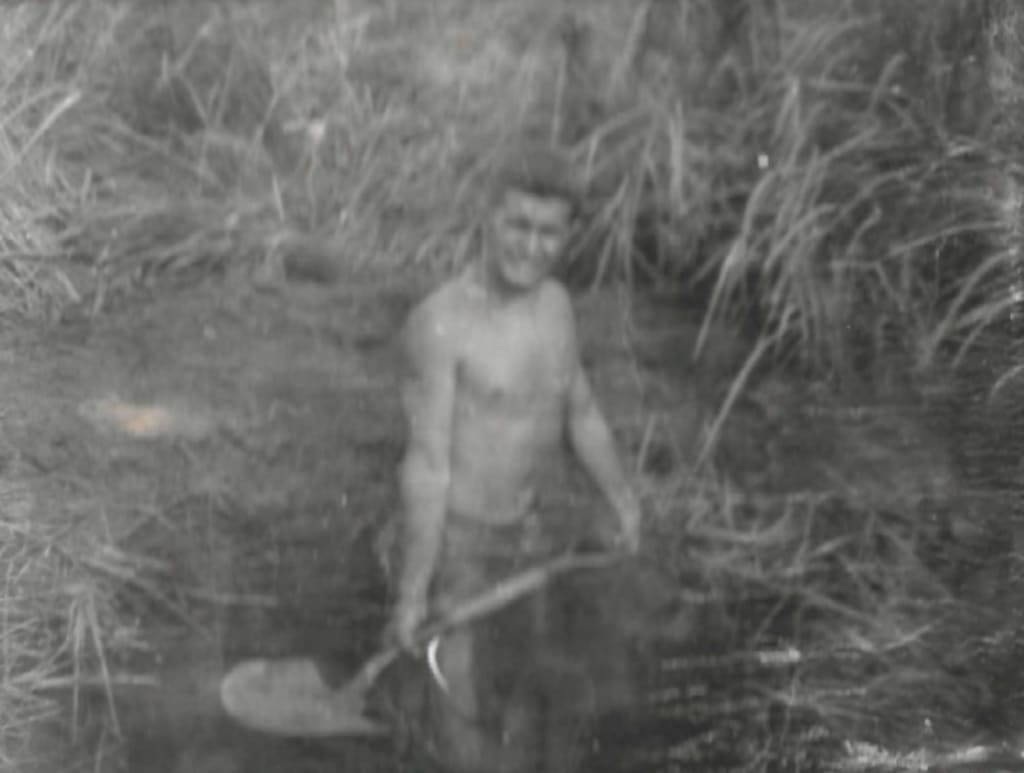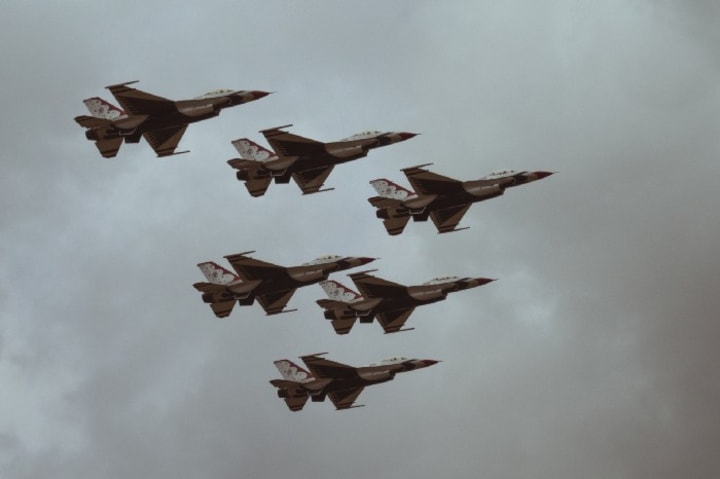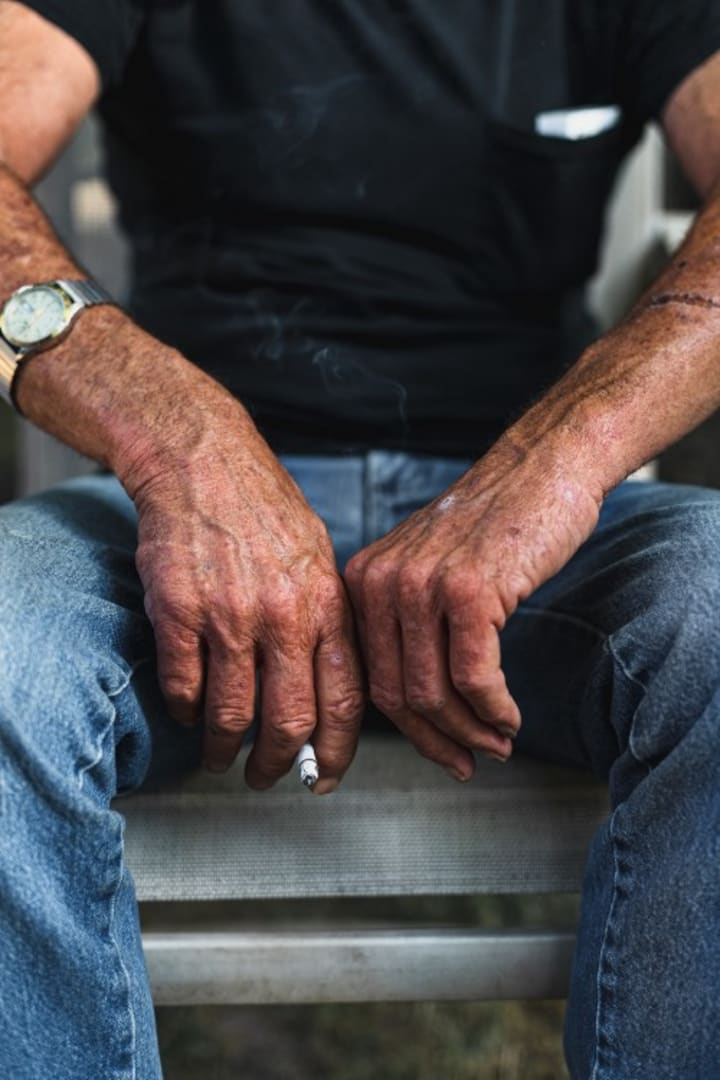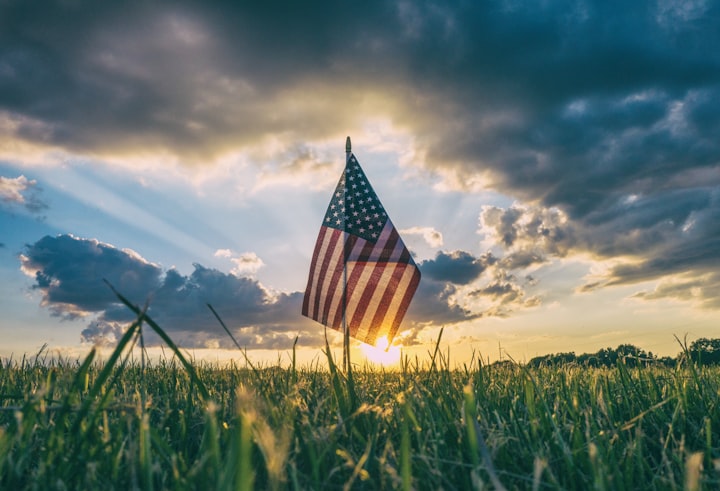The Siege of Tay Ninh Province
The saga of Vietnam's firefights — March 5th, 1967

About me: I am a Permanent and Totally (P&T) disabled veteran of the Vietnam War. I am sharing my experiences looking back after the war in the hope it helps someone else find peace.
When I left to go home, I pledged I would never forget the men and women who weren’t able to board a plane home. I promised I would try to live a life that would make them proud, one that would honor each of them for their sacrifices.
Excerpts from a letter written home dated Wednesday, March 5th, 1967:
Dear Mom and Dad,
I haven’t slept for the past three days. We moved day and night for two days to get to this Viet Cong (V.C.) base camp, and when we got there, all hell broke loose. At the time, we were located on a hilltop, somewhere close to Tay Ninh, to the west of Bien Hoa, and very near the Cambodian border.
Our Second Battalion had made serious contact with the North Vietnamese Army and had called for support. We pushed ourselves through the night to give them some relief. We rendezvoused with them at 5:00 in the morning, in the pitch dark. We positioned ourselves around the heavily wounded company. A battalion of NVA had one of our companies pinned down, trying to wound them instead of killing them. It seems they intended to capture some of our troops to use them as POWs for leverage.
Every morning when we awake, it is standard operating procedure (SOP) to clear the firing field in front of us. It is a ritual we performed every morning, without fail. The standing orders were simple: “If it moves, kill it!”
When we started firing this morning, it was to clear a killing zone in front of us. We opened fire at 6:10. We weren’t sure if the enemy would still be around, but they had stayed, waiting for us. Unsurprisingly, they fired right back at us. It was then I realized we were in an intense, raging firefight, my first of many.
They had the advantage over us. They had tunnels, foxholes, trenches, food, ammo, and water — plenty of supplies and shelter to keep us at bay. All we had was trees to hide behind, and water, but plenty of ammo, and we would need every bit of it to keep ourselves alive. But, we also had something they couldn’t match — air superiority!

Our Company Commander put in a call for resupplies, airstrikes, and artillery. Those had a great impact because, while the airstrikes and artillery was coming in overhead, we were able to get our supplies off the choppers and get them distributed to everyone who needed something. We had been given enough food and water to last us a week.
So, at 7:20, after an hour of relentless airstrikes and artillery had softened them, we started firing again. This time, when we stopped firing “Charlie” was gone. We had driven them from their bunkers and tunnels, leeching into the surrounding jungle, which gave them plenty of exit routes!
We searched their base camp and found food, water, ammo, penicillin, morphine, candy, soda, beer, tools, radios for communications, lighters, toothpaste, toothbrushes, dead Viet Cong, and rifles. Then we checked the tunnels and found more of the same stuff down there, except for 80 bicycles.
Yep, they had transportation, commo wire strung throughout the tunnels, and everything else they needed to conceal themselves. One of the underground rooms had a cache of rice, enough to feed a small insurgency.
I can’t say how many we killed because I don’t know, but there were over 25 dead bodies strewn above and below ground. We had 22 casualties and no deaths. The casualties came from the company that had been pinned down.
One of the biggest lies of this war was that body count doesn’t matter. I can put that fallacy to rest right now…KIAs and WIAs always mattered. It was the best way for the higher chain of command to know whether or not our strategy was working.
For a bunch of 18 and 19-year-old kids, we did all right considering what we had to work with. We grew into men very fast that day.
To the best of my recollection, that was one of the first skirmishes I was a part of over there. I wish it had never happened. It would be the start of a nightmare that would follow me (and every other vet) for years to come.

In my somewhat naive innocence, I had been thrust into a situation of which I had no control, had been forced to kill or be killed, and came out alive. But, I was not left unscathed. Nor were the countless others who had experienced these battles.
The mental scars would take a lifetime to heal, much the same as shell-shocked victims of both World Wars and Korean Veterans have endured.
Why? People have asked me, “Why can’t you leave it over there, just forget about it? After all, you’re safe at home now. No one is shooting at you anymore.”
Because you can’t just snuff out life as if you turn off a light switch without answering to your conscience at some time or another. Life is much too sacred to allow you that comfort, regardless of the rationale behind the execution.
You lay awake at night, hoping and praying for relief from the inner torment you feel. And yet, outwardly, you seem to have been able to escape Vietnam without it adversely affecting you. As any veteran knows, you hide your true feelings so that people won’t think of you as a nut case. You need the acceptance to justify what you did over there.
But inside, in your mind, where you live and breathe, there is turmoil. You feel angry at the way you are received back here in the States. This carries over for years into the way you think and feel about authority figures. Your bosses think of you as some not too easy to get along with, cantankerous individual.
In reality, it’s you fighting against those who would take away your ability to think for yourself. Yes, there is a serious mistrust on your part. I can’t think of a single authority figure whom I would willingly follow to hell and back just because he asked me. Yet, I did that in Vietnam. You had to if you wanted to survive.
During my tour, I told myself there were things I would do and certain things I would never again do once I get back to the States.
For instance, I would take as many long baths as possible, a luxury I couldn’t afford to take. but I would never, ever be caught out in a rainstorm again.
I would respect life and never put myself in this position again. I would never follow along blindly, opting instead to be informed and make decisions for myself. Nor would I allow my son or daughter to be cast into the middle of another doomed war, whether it was popular or not.
I would say a prayer each and every day for all the poor souls that we lost in Vietnam, on both sides.
I have lived true to those words for the past 53 years.
Thanks for reading this!
About the Creator
Reader insights
Outstanding
Excellent work. Looking forward to reading more!
Top insights
Compelling and original writing
Creative use of language & vocab
Easy to read and follow
Well-structured & engaging content
Excellent storytelling
Original narrative & well developed characters
Expert insights and opinions
Arguments were carefully researched and presented
Eye opening
Niche topic & fresh perspectives
Heartfelt and relatable
The story invoked strong personal emotions
Masterful proofreading
Zero grammar & spelling mistakes
On-point and relevant
Writing reflected the title & theme







Comments (2)
Thank you for your sacrifice and service to our nation, Ken. Your words are brutal, honest and true. I salute you.
Good artical